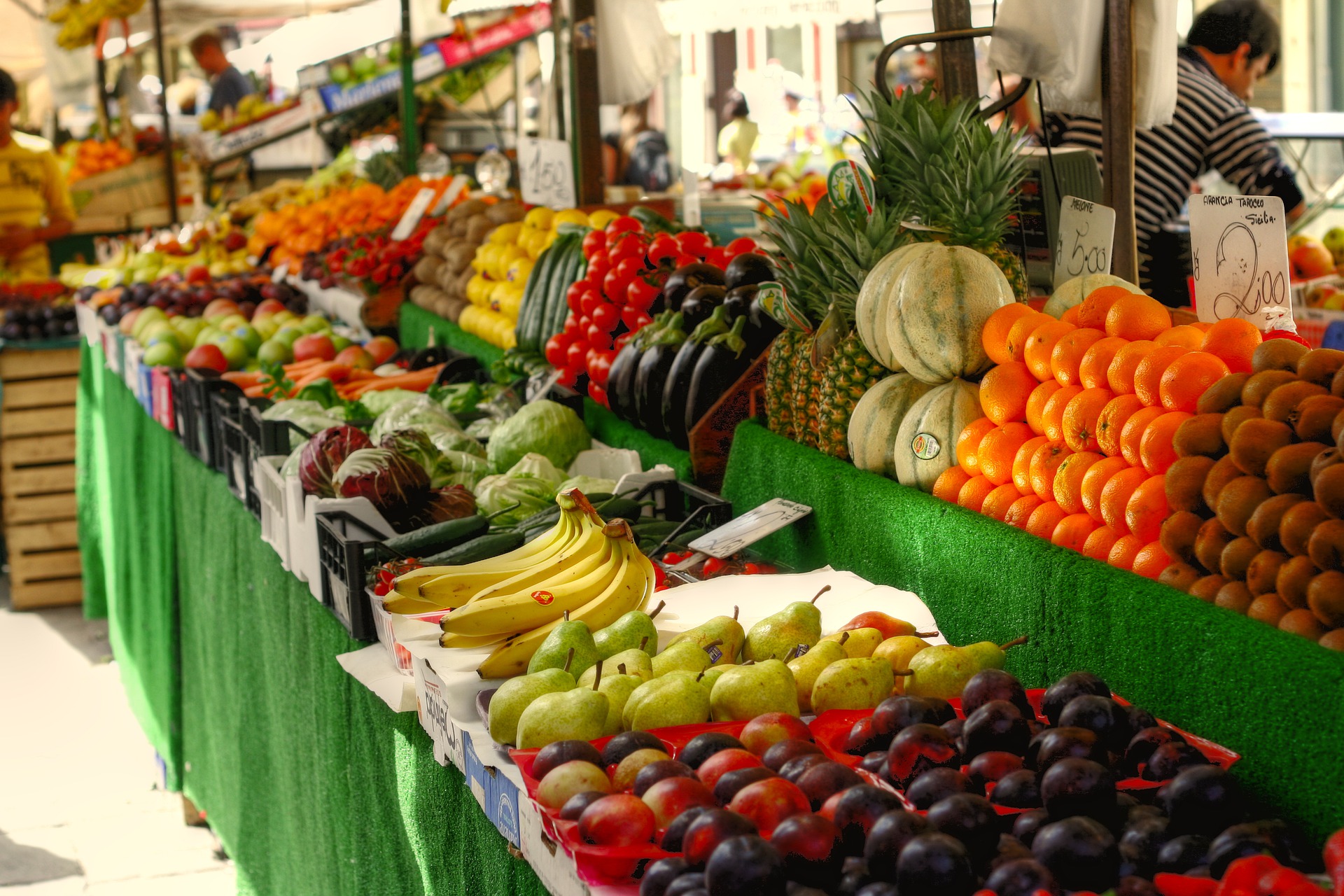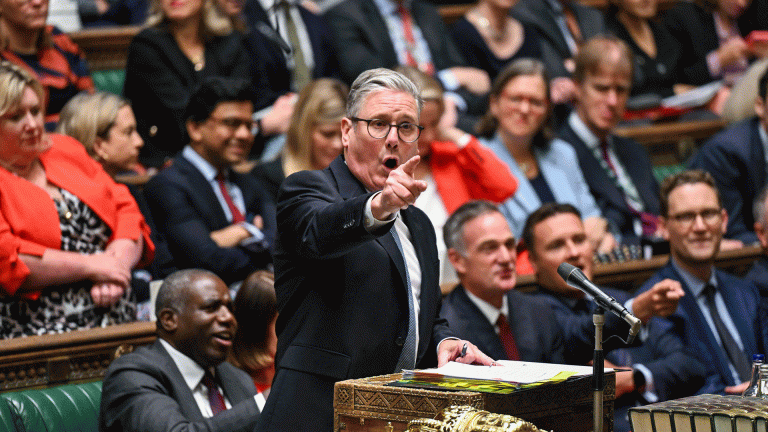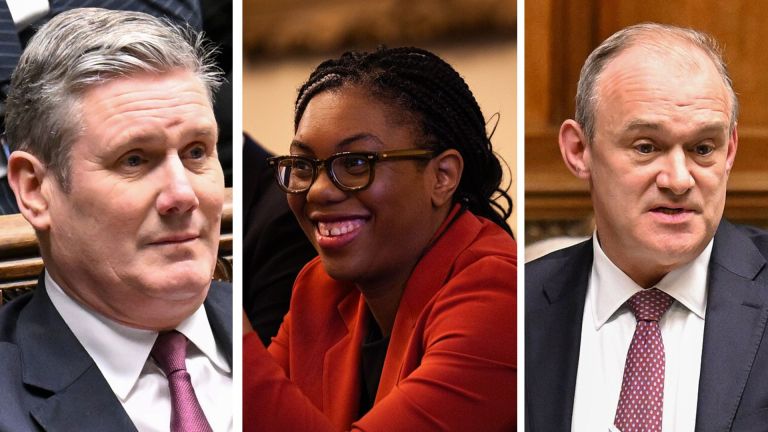The UK officially left the EU in January and we are currently in a transition period, following European rules. Goods currently flow freely across borders but from January 1 2021 this won’t be the case. New customs checks and paperwork are likely in any scenario, and this is likely to cause disruption.
Support Big Issue vendors this Christmas by gifting a subscription
“There will be additional costs for industry doing business with the EU,” Rycroft said. “We can expect to see that feed through to prices but I think it would be pretty modest low single digit [percentage] increases in the event of a deal.”
Rosalind Sharpe from City, University of London’s Food Policy Unit highlighted that even with a deal, a “double whammy” of Covid and Brexit would put food supply at risk and possibly push prices up.
“I don’t think it’s possible to separate Brexit and Covid,” Sharpe said. “It’s a combination now of two things, either of which separately would be highly disruptive to food supplies in the United Kingdom, and they’re happening at the same time.
“The Covid crisis has thrown thousands of people into food poverty. Many more people are struggling to put food on the table. That can only get worse after Brexit, both because of the impact on the food supply and because of the wider impact on the economy which could make unemployment worse.”
Advertising helps fund Big Issue’s mission to end poverty
Will food become more expensive if there is a no-deal Brexit?
If the Government and European leaders cannot agree on the terms of their future relationship, the UK will crash out of the EU and be forced to trade with the bloc on World Trade Organisation rules. This has recently been dubbed the “Australian option” by ministers.
In this case, it becomes more likely prices go up — at least briefly — due to the imposition of higher taxes on imports.
Kath Dalmeny, chief executive of Sustain, the alliance of food, farming and health organisations, told the Big Issue a no-deal Brexit would be bad for consumers and affect millions living in poverty.
Dalmeny said: “We have long maintained that a no-deal Brexit would be bad news for UK farmers, producers and consumers.
“There have been multiple warnings from food businesses and hauliers that new border procedures will quickly lead to delays and severely disrupt our food supply.
Advertising helps fund Big Issue’s mission to end poverty
“Extra checks, paperwork and potentially tariffs will have a knock-on effect on prices and with millions of people living in household insecurity, this is something they can ill afford.”
Rycroft said prices could rise by up to 5 per cent in the event of no-deal.
“There will be potentially larger increases on some sorts of foods we import that will be subject to quite significant new import tariffs. We import quite a lot of dairy products from the EU so those are the areas where you’d expect to see the largest price rises.”
Tesco chairman John Allan warned shoppers they could face price hikes and temporary shortages as a result of no-deal because of disruption caused in the transporting of some foods and new tariffs pushing up prices.
Allan told Bloomberg he didn’t think there was any reason for consumer panic but higher prices were “unavoidable” if a deal wasn’t struck.
Advertising helps fund Big Issue’s mission to end poverty
“If we leave on a no-deal basis there will be tariffs and those tariffs can be quite substantial on some food items. Those are almost inevitably going to lead to higher prices,” he said.
Allan said prices could rise by around three to five per cent but it would depend on what you buy: “Some of the tariffs on imported dairy products, French cheeses for instance, can be as high as 40 per cent plus. If you eat a lot of UK-produced food it will have less impact.”
Will Brexit create food shortages?
So food industry experts agree there will be modest price rises with a deal and more significant increases without. But is there a risk of food running out? Could lorries get stuck at UK ports and leave us with no food? Experts don’t believe so.
Tesco and other supermarket giants are getting ready for no-deal and the situation of food spending more time at ports by stockpiling long-life products, Tesco chairman Allan added.
He said there could be some shortages but, if they did occur, they would only be for a limited period.
“We may see some shortages of fresh foods, particularly short-life fresh foods. I think that will only be for a limited period, perhaps a month or two, before we get back to normal,” Allan said.
Advertising helps fund Big Issue’s mission to end poverty
“I don’t think there is any reason at all for any consumers to panic or panic buy at the moment. There is still going to be plenty of food in the UK – there may just be slightly restricted choice for a period of time.”
But there have long been fears businesses haven’t been given enough time to prepare, even if a deal is struck. Rycroft added it was too late now for companies to get ready, which could lead to “disruption” at the beginning of next year.
“There are still a lot of outstanding questions business has about precisely how many of these new trade processes will work and what paperwork will be required at what stage in the process,” he said.
“Even if those questions are answered in the next week or 10 days it won’t be enough time for everybody to prepare, which is why we think there will be quite significant disruption after January 1.”
He was quick to stress, however, the UK would “absolutely not” run out of food.
“But I think there will be some local shortages of certain types of food,” he added, “or there may be a reduced range of fruit and vegetables in some shops.”
Advertising helps fund Big Issue’s mission to end poverty
Foreign Secretary Dominic Raab also said he was “not concerned” by the prospect of supermarkets running out of stock.
Raab told BBC Breakfast: “Of all the things that will be a challenge, I am not concerned about either supermarket cupboards running bare or the cost of food prices.”
He claimed the UK has a “diverse” supply chain and grows much of its own food. According to Government statistics, 55 per cent of the UK’s food is produced in the country compared to 26 per cent from the EU, with much smaller amounts coming from other places around the world.
How much food does the UK produce and which foods could be more expensive?
Experts have expressed doubt the UK could be anywhere near self-sufficient. City University’s Sharpe said we “absolutely” do not produce enough food in the UK to keep everybody fed because ingredients come from lots of different places.
She was unequivocal: “In absolute terms, we do not produce enough food to feed the whole population. We certainly do not produce enough food to feed the population with the food it expects to be able to eat.
Advertising helps fund Big Issue’s mission to end poverty
“This might range from oranges to plates of chicken wings. We might import wings and export chicken legs, there’s an awful lot of back and forth in the food trade so by no stretch of the imagination is that going to be the case.”
Sharpe added we can try and make trade deals with countries from around the world but might have to pay more than we do at the moment.
“These are things which will take years to organise. It’s not just like going to a market and saying, well, we’ll have two million tonnes of oranges, please,” she added.
“These are things which will take years to organise. It’s not just like going to a market and saying, well, we’ll have two million tonnes of oranges, please.”
Sharpe added during the winter months much of the UK’s fresh fruit and veg is imported from the EU so prices could go up in the event of border disruption.
“What we’re importing at this time of year, in particular, is fruit and a lot of vegetables and they are the things that we could be cut off from. At this time of the year, we’ll be growing very little of our own fruit. It’s fresh supplies that will be really badly affected.”
This was echoed by Rycroft who said we might have to get used to different types of food.
Advertising helps fund Big Issue’s mission to end poverty
He said: “We could, of course, direct more of the locally grown food back into the UK market but that depends on UK consumers wanting to buy the food that we grow here.
“Consumers will have to get used to food being a bit different. There may be fewer varieties of things and shorter growing seasons. We may find that some of our vegetables are not as big or as consistently shaped.
“These are not massive things in the end for people to adjust to, but we have got used to a very wide range of choice and very high quality of food.”










